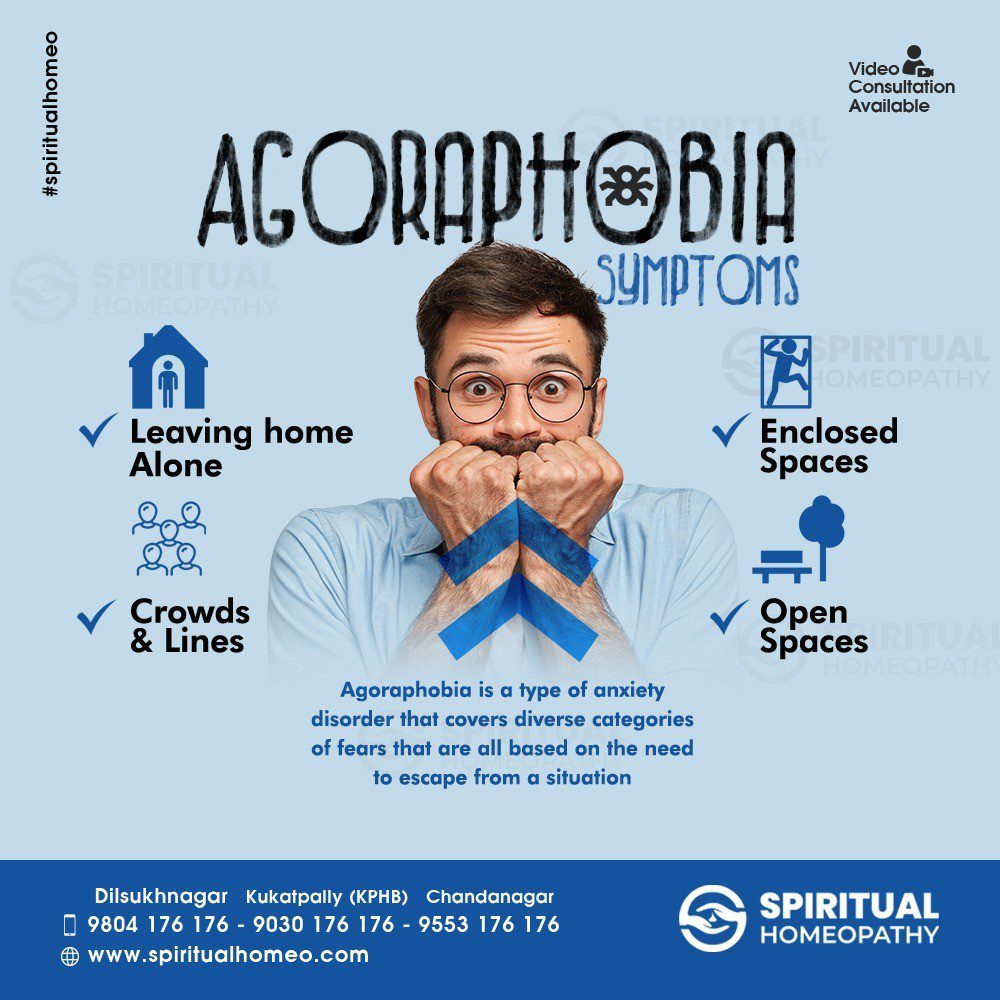Agoraphobia is an anxiety disorder characterized by an intense fear or anxiety about being in situations or places from which escape might be difficult or embarrassing, or where help may not be readily available in the event of a panic attack or other distressing symptoms. Individuals with agoraphobia often avoid or feel extremely anxious in various situations, such as:
-
Open spaces: Fear of open spaces, such as parks, squares, or large public areas.
-
Crowded places: Anxiety about being in crowded areas, such as shopping malls, stadiums, or public transportation.
-
Enclosed spaces: Fear of being in enclosed spaces, such as elevators, tunnels, or small rooms.
-
Leaving home: Reluctance or avoidance of leaving one’s home or familiar safe environment.
-
Traveling alone: Anxiety about traveling alone, particularly to unfamiliar places.
-
Fear of being trapped: Concerns about being unable to escape or find help if needed, leading to avoidance of situations perceived as potentially trapping.
Agoraphobia often develops as a result of panic disorder, where individuals experience recurrent panic attacks. The fear of experiencing a panic attack in certain situations becomes associated with those situations, leading to avoidance behavior and the development of agoraphobia.
Some common signs and symptoms of agoraphobia include:
-
Intense fear or anxiety in situations perceived as potentially difficult to escape or find help.
-
Avoidance of specific situations or places that trigger anxiety or panic symptoms.
-
Panic attacks or severe anxiety when faced with feared situations.
-
Feelings of helplessness, embarrassment, or loss of control in triggering situations.
-
Dependence on a trusted companion to accompany them in feared situations.
-
Physical symptoms such as rapid heartbeat, shortness of breath, sweating, trembling, dizziness, or chest pain during anxiety-provoking situations.
-
Interference with daily activities, work, or relationships due to avoidance behaviors.
-
Cognitive-behavioral therapy is a common approach, which helps individuals identify and challenge irrational thoughts and beliefs, gradually face feared situations through exposure therapy, and develop coping skills to manage anxiety and panic symptoms. Medications such as selective serotonin reuptake inhibitors or benzodiazepines may be prescribed to alleviate anxiety symptoms.
If you or someone you know is experiencing agoraphobia, it is important to seek professional help from a mental health provider who can provide an accurate diagnosis and develop an appropriate treatment plan. With proper homeopathic treatment and support, and regain their ability to engage in everyday activities.



